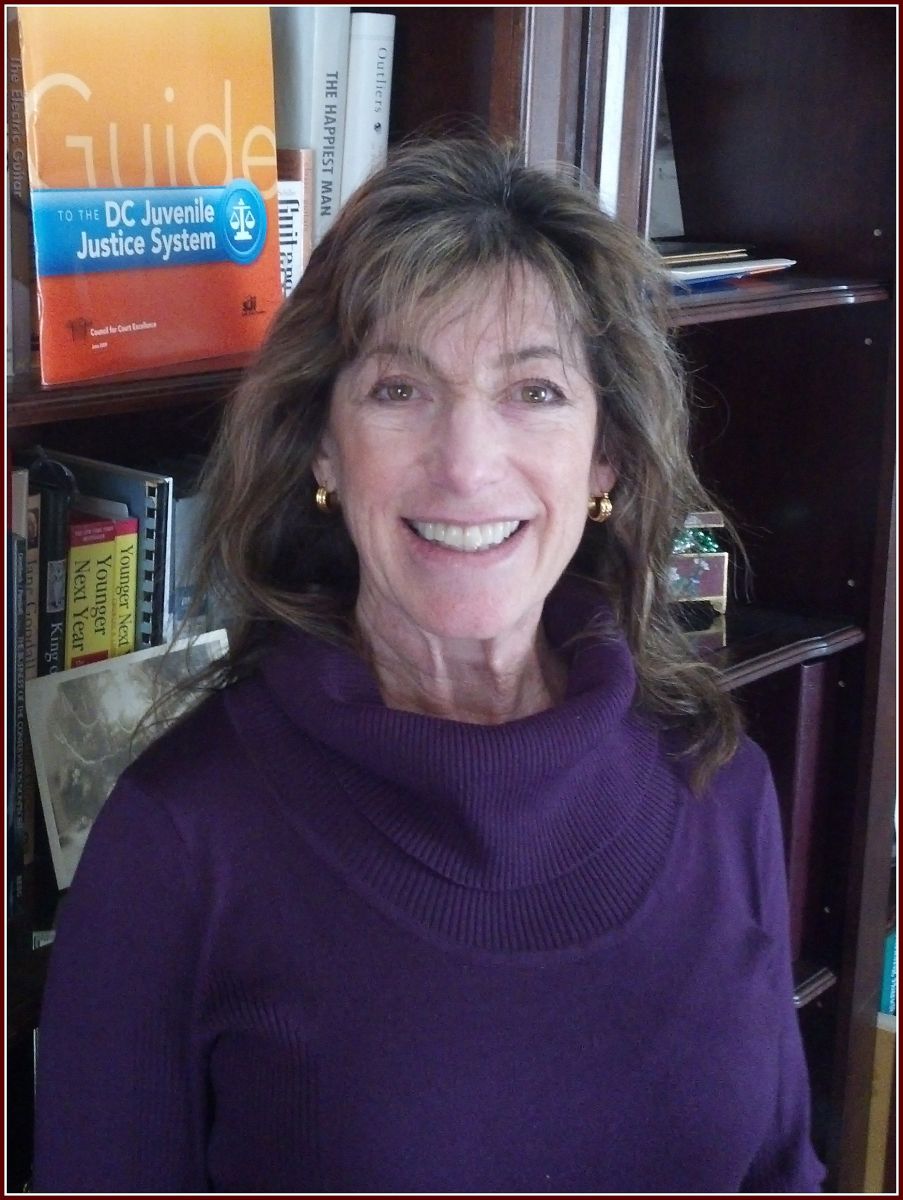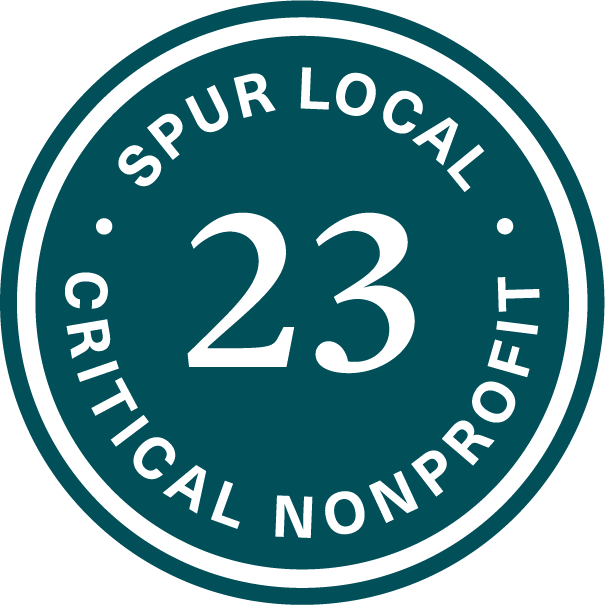Interview with CCE Finance Committee Chair, Julia Matthews

CCE Executive and Finance Committee member Leslye Givarz recently sat down for a one-on-one conversation with CCE Executive Committee member and chair of the Finance Committee, Julia Matthews, who is a Vice President and Senior Banking Advisor at PNC Wealth Management.
Leslye Givarz (LG): Thank you for talking with me today and for sharing your thoughts on the Council for Court Excellence from your perspective as long-time Chair of its Finance Committee. Tell us about your background and your career path to where you are today.
Julia Matthews (JM): I grew up in Norfolk, Virginia, where my parents still live, but after high school left for Charlottesville to attend the University of Virginia. From there, I got a job in commercial banking, as this was the period when interstate banking was on the rise, and I worked in Charlotte, North Carolina and then in Greensboro. From there, I went on to Wake Forest Law School.
LG: Did you have any idea you’d wind up in banking and finance?
JM: Not really. I went to law school because all the smart and really fun people I knew then were lawyers and I wanted to be around them! So after law school, I worked for several firms where the talent was exceptional. But I didn’t gravitate towards practicing, although I’m licensed to practice in Virginia. For a time I clerked for the Department of Labor and then worked for a few larger firms in North Carolina and Virginia. But I just didn’t want to engage in large firm practice for the long-term. From there I worked for a boutique law firm that did PPO’s and provided advice to doctors on estate and tax planning. But the practice of law was just not for me and I realized I wanted to return to more of a business environment.
So I went to work for an entrepreneur at Mooring Financial Corporation, and I really loved the CFO role. I helped start and run a hedge fund, working with investors and providing financial advice for about 9 years. It was great fun because of the entrepreneurial spirit and being in a climate where people were opportunistic in a positive sense. Then in 2004, I was contacted by a group interested in starting a bank and spent almost a year on that very exciting start-up. The bank, by the way, is still going strong at almost $800 million in assets.
LG: Were you involved in a more holistic approach and environment at that point?
JM: Yes, definitely. I helped them with compliance issues and got consumer lending off the ground, again thoroughly enjoying the challenge of a start-up. From there, I talked to people at PNC Bank, interested in moving into the area of wealth management. I knew this would give me an opportunity to work with law firms but still be on a team that advised individuals and managed relationships with law firms. So I kind of came full circle and am fortunate to be able to provide my expertise and experience to both the banking and legal fields.
LG: So what’s a typical day like for you, and how is business these days?
JM: Business is good. Banking is going through a significant transition now, as banks are becoming more regulated, which is a good thing. But clients need to be reminded of certain things. So my work is very much in an advisory capacity. We must make sure the clients know what they’re expected to do. Since the financial crisis, the pendulum has definitely swung from a looser environment to one in which everyone needs to become more responsible. This period of greater responsibility is a positive change, but it means making sure that clients are aware of their financial obligations and their financial futures.
LG: What do you like to do in your spare time?
JM: I have lots of different interests, especially spending time with friends. I’m a huge tennis fan and a Washington Capitals fan, thanks to David Cox and and his wonderful Verizon Center seats. I’m also very much into movies and love the history of movie-making. And although I haven’t traveled much lately, I’ve been to lots of interesting places, including Egypt, and enjoy traveling around the US as well.
LG: When and how did you get involved with the Council for Court Excellence? What prompted that affiliation?
JM: It was in 2006. I heard from John Tydings [former Board of Trade Chief Executive and later a consultant to PNC] about a gathering of people taking place to hear more about the work of the Council for Court Excellence. The chairman at the time was John’s good friend, Michael Rogers, who had served as DC’s City Administrator and was then Executive Vice President at MedStar Health. Michael hosted an incredibly informative breakfast at The City Club and several lawyers I knew, like Nick McConnell and Doug Spaulding, attended with me. Doug and I both joined the Council’s Board not long after that, as the work of the organization appealed to our interest in justice and the intersection with law and business.
LG: What keeps you so committed to and active with the Council for Court Excellence?
JM: I have always been very involved in nonprofit organizations. For a long time, I was active with the Junior League and through them volunteered with many other groups. I’m also involved with CASA [Court-Appointed Special Advocates] and serve as the organization’s Treasurer. With the Council for Court Excellence, I love working with the Finance Committee, seeing the inner workings of the organization and having a front-row seat to all of the projects that are going on, at least from a financial point of view. Plus I get to work with very bright people who are lawyers, businesspeople, judges, and members of the civic community.
LG: What have been some of your most significant challenges with respect to CCE?
JM: I’ve always enjoyed problem-solving. When I first joined CCE’s Board and the Finance Committee, we were facing a budget deficit, having lost some foundation support and city funding. So the priority was how to refocus our financial plan and of course I gravitated towards that kind of challenge. A big benefit, then and now, is the organization’s leadership that is aware and on target. These are people who think creatively and are so impressive. So I’m proud to be a part of this organization. And while it’s not always easy to be enthusiastic about the mission of an organization when you need to watch the bottom line, I’m very committed to CCE’s mission of improving the city’s justice system.
LG: What keeps you going?
JM: I recall attending my first Justice Potter Stewart Awards Dinner and realizing the extent of this great networking opportunity. The dinner was well attended and it was exciting to see such a diverse group of people who appeared to know one another, very much like a family. So I got involved, and the more active I became, the more I got out of the entire experience. After all these years, I’m grateful to be a part of that community.
LG: From my vantage point on the Finance Committee and a member of the Executive Committee, we are all very appreciative of the role you have played and continue to play.
JM: The fact is that some organizations are much better than others at recognizing and resolving substantive issues. The CCE Board is very willing and able to dive into thorny problems, and we are fortunate that the leadership is both proactive as well as responsive to challenges in a timely way. I love being among so many creative thinkers.


